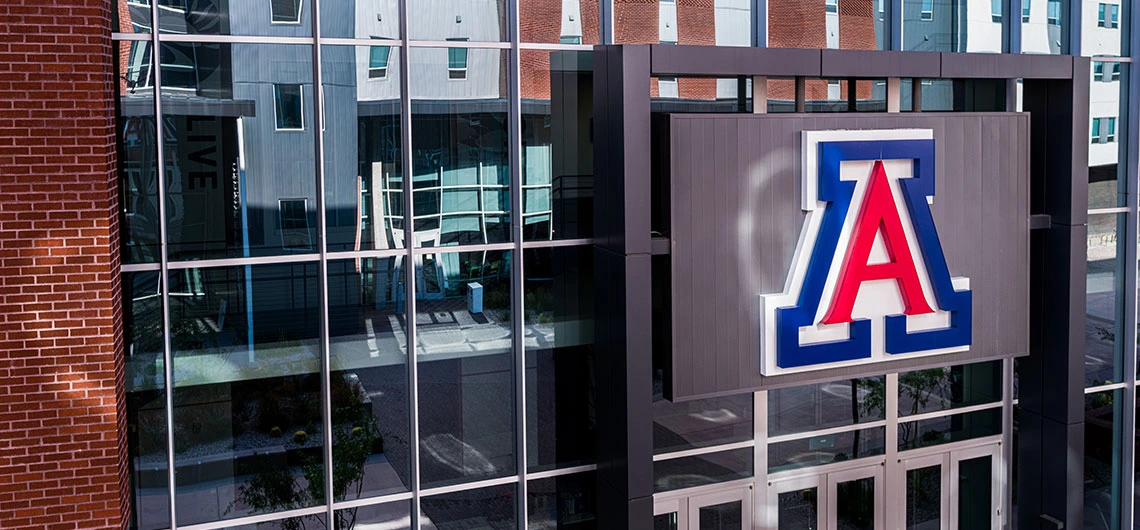College of Applied Science and Technology and College of Information Science Unite to Advance Innovation and Student Success

In a strategic move designed to advance academic innovation and student success, the University of Arizona is integrating the College of Applied Science and Technology into the College of Information Science, effective July 1, 2025. The alignment brings together two complementary academic units to create a unified home for disciplines at the forefront of information science, including cybersecurity, data science, intelligence and information operations, library and information science, game design and development, machine learning and artificial intelligence.
“By combining the strengths of CAST and the College of Information Science, we will enrich the educational experience of our students, the reach of our curricular programming in the region and the research synergies for faculty,” says Catherine Brooks, interim dean of the College of Information Science. “We’re building a space where interdisciplinary collaboration thrives—where students preparing for careers in information fields will have access to expanded research opportunities, innovative programming and strong community and industry partnerships.”
The integration ensures that academic programs, faculty and staff from CAST will transition into the College of Information Science, with no disruption to student coursework, advising or admissions. Signature CAST programs—including cyber intelligence and information operations, applied computing and applied sciences—will continue without interruption.
A Mission-Driven Alignment
As part of the university’s broader effort to adapt its organizational model to meet evolving societal and industry needs, the integration is what interim Senior Vice President for Academic Affairs and Provost Ronald Marx calls “an exciting and forward-looking moment for the university.”
“This integration reflects our commitment to adapting our organizational model to better serve our students and enhance opportunities for cross-disciplinary collaboration that drives innovation and addresses real-world challenges,” says Marx. “These strategic changes are part of continued efforts to work together to enrich the educational experience of our students, position our university for future success and strengthen our ability to fulfill our land-grant mission.”
Leaders of both colleges emphasize that the integration is designed to foster the transformational work that has defined both CAST and the College of Information Science.
“The imperative work and programs that have been created in CAST will remain, and together we will build an even stronger, more interdisciplinary college,” says Nicol Rae, acting dean of CAST. “CAST has long championed student access and success, especially for undergraduates and transfer students across Arizona and beyond. This next chapter allows that mission to grow alongside expanded interdisciplinary research and graduate opportunities.”
Stronger Together: Building Collaborative Ecosystems
For Gary Packard, interim senior vice provost for online initiatives, the integration represents not just structural change, but a meaningful investment in the university’s future. “This alignment positions us to strengthen partnerships across academia, government, industry and communities,” Packard says. “It’s about building the collaborative ecosystems that our students—and the challenges they will face—demand.”
“We are at a moment of opportunity,” Brooks says. “The work ahead is about connection and collaboration—across disciplines, across sectors and across communities. Together, we aim to expand our reach and impact across student populations, disciplinary boundaries and geographic borders. Together, we will shape a college that not only reflects the evolving landscape of information science, but helps lead it.”

